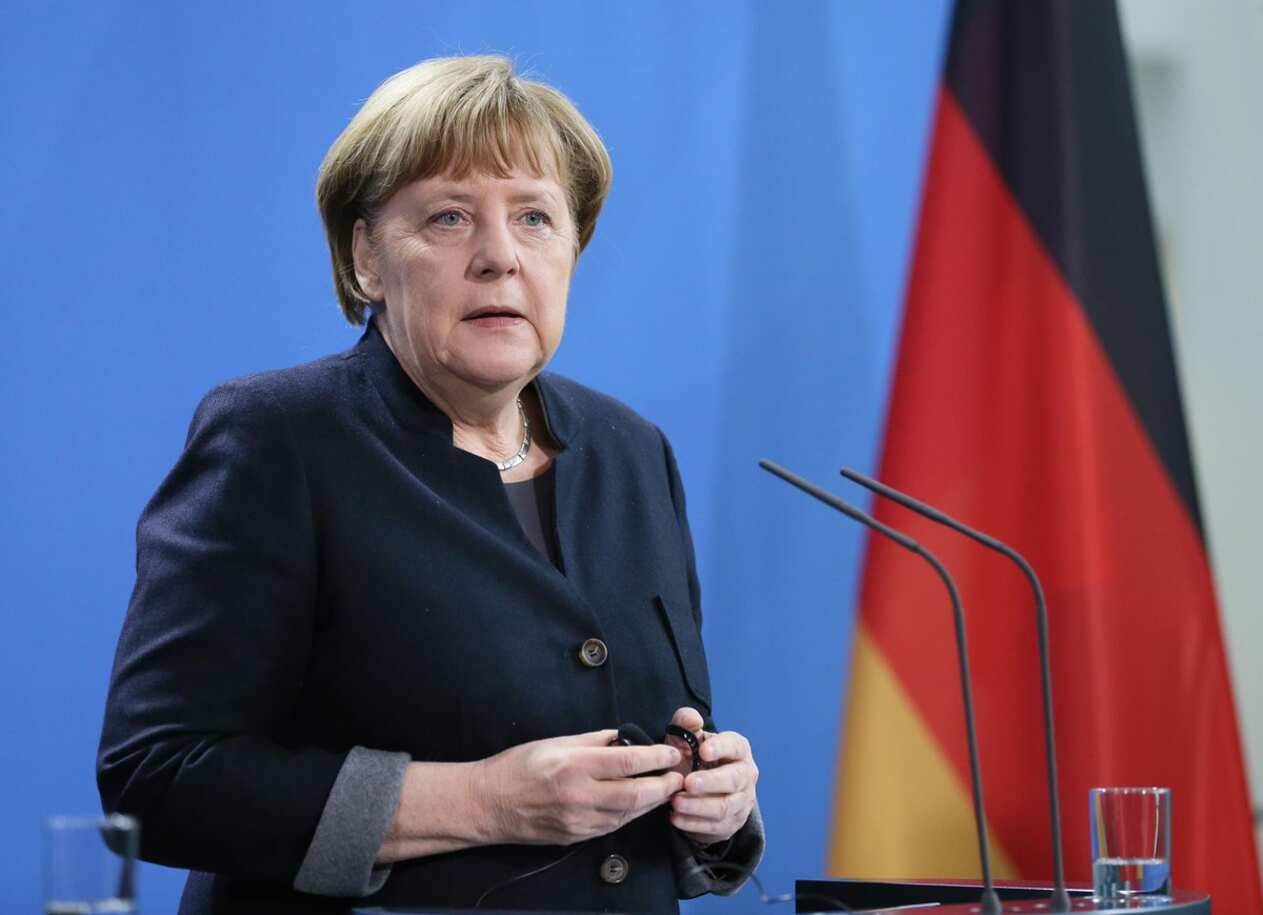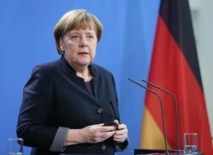Parties across the political spectrum were in uproar after Thomas Kemmerich of the economically liberal Free Democrats (FDP) was elected premier of the central German state on Wednesday.
It was the first time that the Alternative for Germany (AfD), an anti-immigrant party accused of harbouring Nazi sympathies in its more extremist fringes, had helped to vote a state premier into office, together with lawmakers from the FDP and Merkel's Christian Democrats (CDU).
Kemmerich came under immense pressure and announced his resignation within 24 hours of taking office. The FDP is now pushing for fresh elections in the state, which has been without a government since polls in October.
"We don't know at the moment where we stand with the CDU," Esken said, adding that the SPD had called a meeting with its conservative coalition partners for Saturday.
Esken and fellow SPD party leader Norbert Walter-Borjans insisted that they would not use the political upset as an excuse to leave the coalition, which has been beset by infighting for years.
The CDU leadership was set to hold an extraordinary meeting in Berlin on Friday to discuss the fallout from the shock vote.
Merkel said on Thursday it was "unforgivable" that members of her party had voted alongside the AfD.
FDP party leader Christian Lindner, who initially appeared to back Kemmerich and then withdrew his support, is also set to submit himself to a party confidence vote on Friday.
The FDP only just made it over the 5-per-cent hurdle to enter the Thuringia legislature in October.
Bodo Ramelow of the hard-left Die Linke had hoped to be re-elected state premier before the upset. He had lined up a minority government with the Greens and the SPD, whose support collapsed in the October elections.
It was the first time that the Alternative for Germany (AfD), an anti-immigrant party accused of harbouring Nazi sympathies in its more extremist fringes, had helped to vote a state premier into office, together with lawmakers from the FDP and Merkel's Christian Democrats (CDU).
Kemmerich came under immense pressure and announced his resignation within 24 hours of taking office. The FDP is now pushing for fresh elections in the state, which has been without a government since polls in October.
"We don't know at the moment where we stand with the CDU," Esken said, adding that the SPD had called a meeting with its conservative coalition partners for Saturday.
Esken and fellow SPD party leader Norbert Walter-Borjans insisted that they would not use the political upset as an excuse to leave the coalition, which has been beset by infighting for years.
The CDU leadership was set to hold an extraordinary meeting in Berlin on Friday to discuss the fallout from the shock vote.
Merkel said on Thursday it was "unforgivable" that members of her party had voted alongside the AfD.
FDP party leader Christian Lindner, who initially appeared to back Kemmerich and then withdrew his support, is also set to submit himself to a party confidence vote on Friday.
The FDP only just made it over the 5-per-cent hurdle to enter the Thuringia legislature in October.
Bodo Ramelow of the hard-left Die Linke had hoped to be re-elected state premier before the upset. He had lined up a minority government with the Greens and the SPD, whose support collapsed in the October elections.









 Home
Home Politics
Politics











